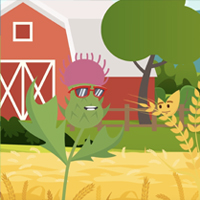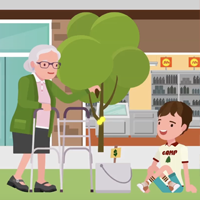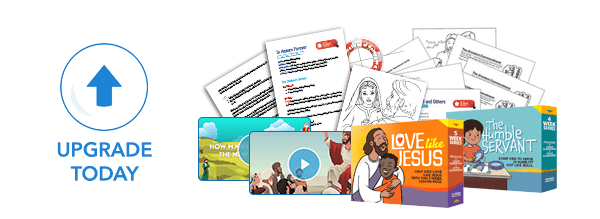Sermon
Parable of the Tenants
Recommended Age:
Lower Elementary
Theme
The Parable of the Wicked Tenants.
Object
Some popular story books
Scripture
The tenants seized his servants; they beat one, killed another, and stoned a third. Then he sent other servants to them, more than the first time, and the tenants treated them the same way. Last of all, he sent his son to them. 'They will respect my son,' he said. "But when the tenants saw the son, they said to each other, 'This is the heir. Come, let's kill him and take his inheritance.' So they took him and threw him out of the vineyard and killed him. Matthew 21:35-39 (NIV)
Summary of this sermon...
Jesus taught using parables, and today's lesson is about the Parable of the Wicked Tenants. A landowner rented his vineyard to farmers, but they beat and killed his servants and son. This story represents God's love and patience with us, sending prophets and finally His Son, Jesus. We must respect and accept Jesus as our only chance for eternal life. Matthew 21:35-39.Activities + Resources
Do you like to hear stories? When I was a child, I loved it when my parents or my teacher read stories to me. Some of the best stories that I remember to this day are "The Three Little Pigs," "Goldilocks and the Three Bears," "The Ugly Duckling," and "Little Red Riding Hood." Oh, I know those stories are pretty old and you probably have your own list of favorites. What are some of your favorites?
Did you know that Jesus liked to tell stories? The stories that Jesus told were called parables and he used them to teach his followers about right and wrong. The way he did this was by comparing good behavior and bad or using examples of some of life’s hard lessons that we all need to learn. For example, you have probably heard the story that Jesus told about the Good Samaritan. It is a story about how we should be kind to other people. Another story that Jesus told was the story about the Prodigal Son. It is a story about a father who loves his son even when he did wrong. The Bible is full of parables that Jesus told and we can learn a lot by listening to them.
Our Bible lesson today one of Jesus' parables. It is a story about a man who owned some land. He planted some grapes on the land and then rented it to some other farmers who were to work in the vineyard and take care of it for him. Part of the agreement he had with these farmers was that they would give him a share of the crops.
When it came time to harvest the grapes, the landowner sent his servants to collect his share of the harvest. The farmers who had leased the land beat the servants and even killed one of them. They refused to give the landowner what was owed to him.
A second time the landowner sent servants, more than the first time, but again the farmers treated them in the same way.
Finally, he sent his own son, thinking, "Surely they will respect my son."
But when they saw the son coming, they said, "This is the landowner's son, let's kill him and take his inheritance."
Jesus asked the men listening to his story, "What do you think the landowner will do to those men?"
"He will destroy those wicked men, and rent his land to someone else, who will give him his share of the fruit at harvest time" answered his listeners.
In this story that Jesus told, the landowner represents God. God first sent men such as Noah, Moses, David, the prophet Isaiah, and others to tell people of his love for them and to call them to turn away from their wicked ways, but many would not listen. Finally, he sent His own Son, Jesus. You know what they did to him, don't you? That's right, they crucified him. God gave them a chance. He even gave them a second chance—and a third. But when they rejected His Son, that was their last chance. He is our last chance too—our only chance to have eternal life in heaven with him.
Dear Father, we thank you for sending us Jesus, your only Son. Help us to remember that he is our only chance to receive eternal life. In Jesus' name we pray. Amen.
Activities + Resources
Teacher Reviews
Review this content
Share your thoughts with others
Teachers say
No reviews have been added yet, be the first to review!




